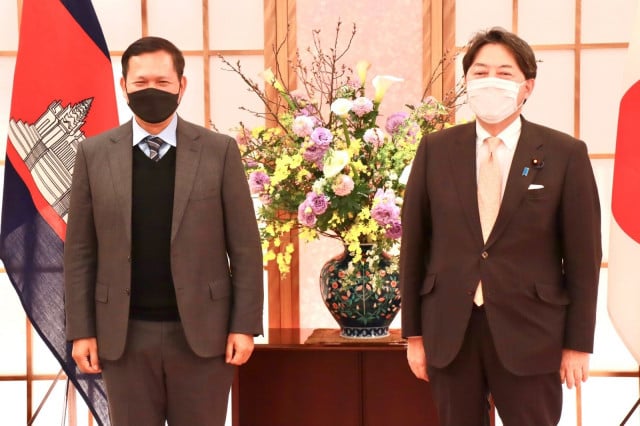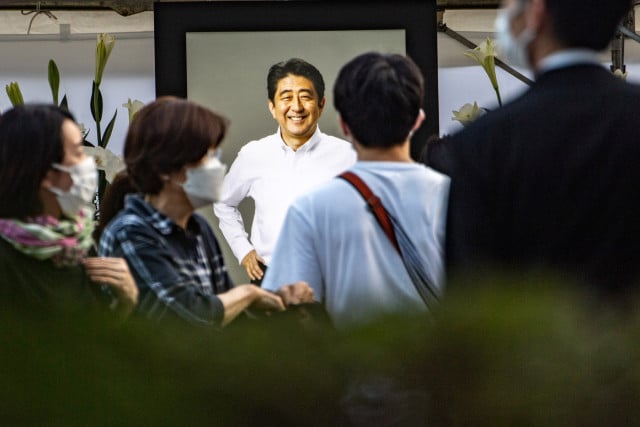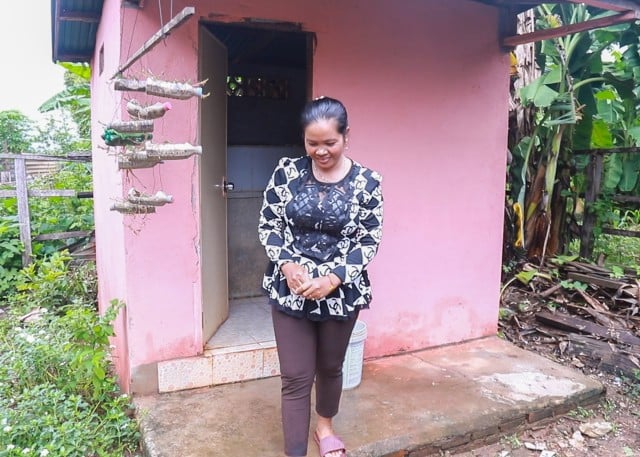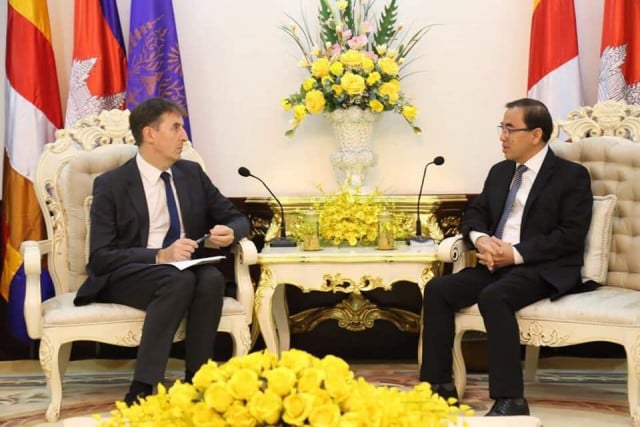Japan Pledges to Assist Cambodia in Holding Elections with Diverse Voices

- By Sao Phal Niseiy
- February 15, 2022 4:10 PM
Prime Minister Hun Sen’s son and successor Hun Manet is in Japan where meetings with various officials have resulted in pledges to strengthen Cambodian democracy and regional security
PHNOM PENH--Japanese Foreign Minister Hayashi Yoshimasa on Feb. 14 expressed Japan’s intention to assist Cambodia in ensuring the upcoming elections can be held in a democratic manner and in addressing regional security issues.
Hayashi conveyed Japan’s ambitions during a meeting with Lieutenant General Hun Manet, Commander of the Royal Cambodian Army who is visiting Japan at the invitation of the Defense Ministry.
“Minister Hayashi expressed Japan’s intention to cooperate with Cambodia to ensure that Cambodia’s commune elections this June and its general election next year will be held in a way that reflects the diverse voices of the Cambodian people,” read a statement issued by Japanese Ministry of Foreign Affairs.
In response, while highlighting his efforts to strengthen relations with Japan, Manet also expressed his appreciation for the country’s contribution to Cambodia’s peace process, reconstruction and economic development.
Manet, eldest son of Prime Minister Hun Sen, is also set to hold separate talks with Japanese Prime Minister Fumio Kishida and Defense Minister Nobuo Kishi during his visit.
Japan decision to invite Manet, who is designated to succeed Hun Sen after being officially elected as leadership candidate by the ruling Cambodian People’s Party (CPP) late last year, has been seen as Japan aiming for more active engagement in Cambodia.
According to Heng Kimkong, senior visiting research fellow at Cambodia Development Center, the invitation and enhanced engagement reflects Japan’s vital role in the socio-economic development of Cambodia and its attempt at democratization.
“Japan has been supportive of Cambodia and has engaged Cambodia in a more inclusive and meaningful manner compared to other powers such as the United States,” Kimkong explained, pointing out that the approach has had both positive and negative consequences for the development of Cambodia’s democracy.
However, he stressed that Japan's interest in supporting Cambodia to hold local and national elections—which reflect the diverse voices of the Cambodian people—will be well-received by the Cambodian side, which, he believed, will contribute to improving bilateral relations.
Boosting Bilateral Cooperation to Face Regional Challenges
In the same conversation, Hayashi and Manet discussed regional issues including the Myanmar crisis, conflicts related to the South China Sea, as well as North Korea, with Japan signaling it is willing to coordinate with Cambodia on these contentious issues.
“Japan and Cambodia share strong relations and are working closely together on the issues of the international community such as the situation in Myanmar,” the statement stated.
Furthermore, both sides pledged to strengthen cooperation between the two countries especially in terms of security.
For Kimkong, who is also PhD candidate at University of Queensland, Japan’s intention to work with Cambodia to address security issues demonstrates the role of ASEAN, which Cambodia currently chairs for the year.
“This is a privilege for Cambodia as Japan—a major player in the region—wishes to engage it and support Cambodia's efforts to bring about peace in Myanmar and address pressing issues in the region,” he explained.















